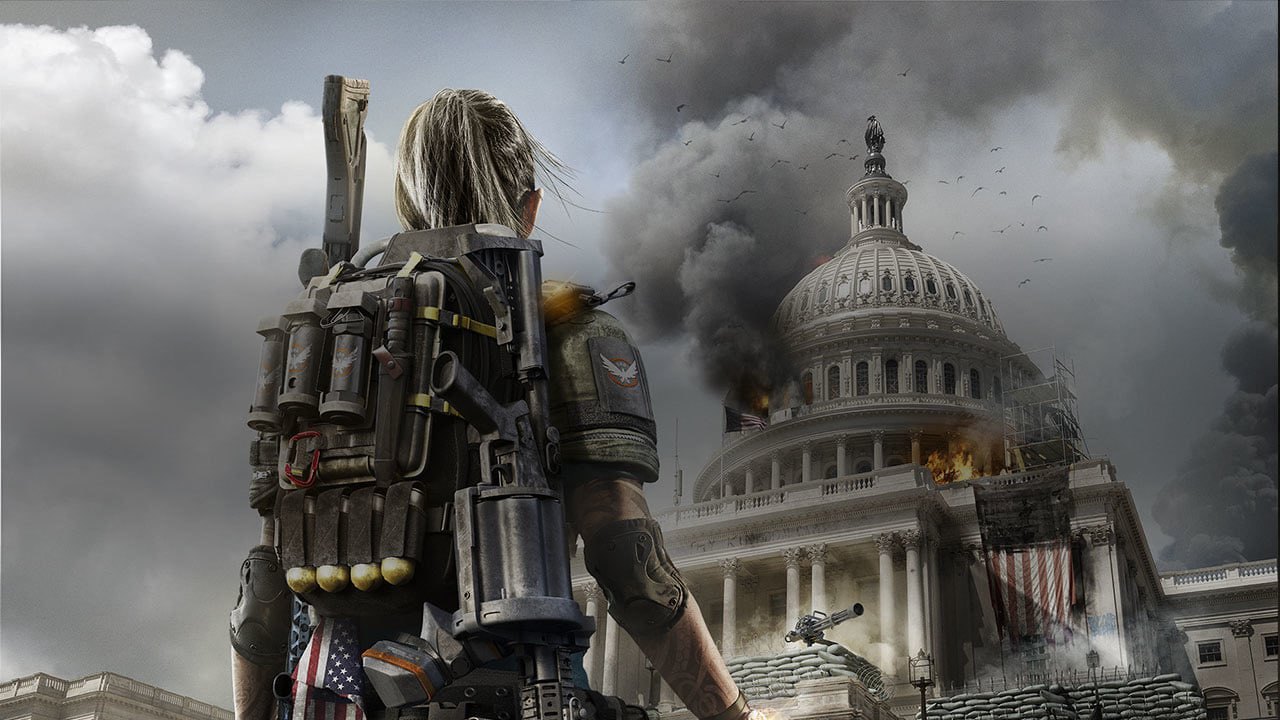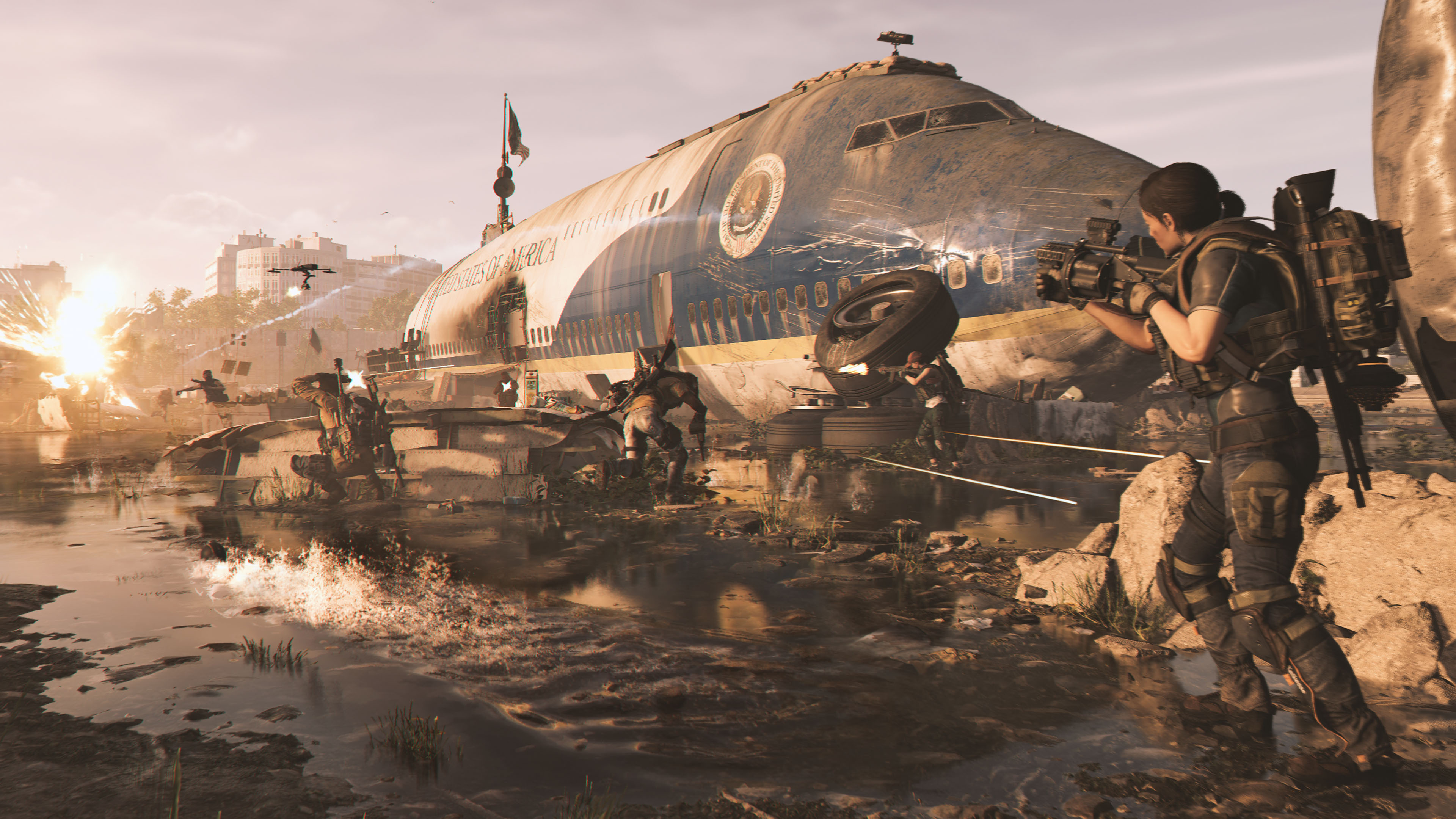Ubisoft executive says politics in games is 'bad for business'
Ubisoft Massive is the studio behind The Division, a game about destroying New York City to save it.

Despite being a top executive at the studio responsible for Tom Clancy's The Division, Ubisoft Massive COO Alf Condelius said during a panel at the Sweden Game Conference that "we cannot be openly political in our games," because doing so is "bad for business."
"For example in The Division, it's a dystopian future and there's a lot of interpretations that it's something that we see the current society moving towards, but it's not—it's a fantasy," Condelius said, as reported by GamesIndustry. "It's a universe and a world that we created for people to explore how to be a good person in a slowly decaying world. But people like to put politics into that, and we back away from those interpretations as much as we can because we don't want to take a stance in current politics."
"It's also bad for business, unfortunately, if you want the honest truth ... But it is interesting and it is a discussion that we have, and it's an ongoing discussion we have with our users, of course, because people want to put an interpretation into the universe that we create and they want to see their own reality in the fantasies that we give them, and the stories that the games are."
It's an interesting stance to take, particularly for Ubisoft. Along with The Division, a game about anonymous agents of a previously secret Homeland Security unit who respond to a devastating pandemic in New York City by killing truckloads of Americans whose core crime is not wanting to starve and die, Ubi also publishes Ghost Recon Wildlands (American hit team infiltrates Third World nation to topple the government) and Far Cry 5 (Christian fundamentalist cult takes over a slice of backwater Montana and only heavily-armed locals can stop them).
They're all good games, and at no point do any of them flash pop-ups saying "War is Bad" or "Save the Whales." Far Cry 5 is especially muted and mushy when compared to the impression it made when it was first revealed. But calling any of them them apolitical is a real stretch: Even if Ubisoft isn't endorsing a particular message, it's certainly building on one.
Also interestingly, Condelius cited another upcoming Ubisoft project to illustrate the company's efforts to separate politics from games: The Avatar Project, based on James Cameron's not-exactly-subtle film about the evils of corporate imperialism.
"James Cameron's vision with the movie is that we need to do something as humans because we're going to destroy the world if we continue the way we are [going]," he said. "That is political, but we're not going out and saying you should vote for that person, or you should not do this; but it's a political statement of course, and we think that it's important, but we're not writing it on somebody's nose."
Keep up to date with the most important stories and the best deals, as picked by the PC Gamer team.
Despite seemingly taking the opposite position, Condelius' comments actually jibe with those of Ubisoft CEO Yves Guillemot, who said earlier this year that Ubisoft games actually are political—but politically neutral. "We want players to listen to different opinions and to have their own opinions," he said in June. "Our goal is to give all the tools to the player in order for them to think about the subjects, to be able to see things from far enough away."
Ubisoft Massive is currently working on The Division 2, set in the aftermath of the pandemic in the US capital of Washington DC, which has fallen into civil war. An early promo image features characters engaged in a firefight around the downed hulk of Air Force One.


Andy has been gaming on PCs from the very beginning, starting as a youngster with text adventures and primitive action games on a cassette-based TRS80. From there he graduated to the glory days of Sierra Online adventures and Microprose sims, ran a local BBS, learned how to build PCs, and developed a longstanding love of RPGs, immersive sims, and shooters. He began writing videogame news in 2007 for The Escapist and somehow managed to avoid getting fired until 2014, when he joined the storied ranks of PC Gamer. He covers all aspects of the industry, from new game announcements and patch notes to legal disputes, Twitch beefs, esports, and Henry Cavill. Lots of Henry Cavill.

